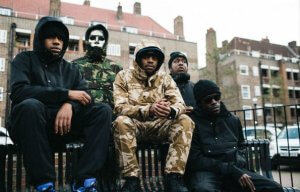
Last week a music event was hosted by the Music Therapy Charity, Nordoff Robins. It was centred around their national awareness day, ‘Get Loud’. The aim was to spread a message about the importance of using music to overcome difficulties in life. As a charity, Nordoff Robins focuses on providing music therapy for people who are vulnerable and isolated. Therefore the clients can be from a wide variety of backgrounds. For example, some of the previous work by Nordoff Robbins has assisted in helping people with Autism to find peace and wellbeing. Their other work has assisted in those going through physical rehabilitation or trauma.
However, almost ironically, the headline act for the night was the south London group, ‘67’. For those who are not aware, ‘67’ are known to talk about money, drugs and violence. Because of this, I found it quite difficult to understand how the messages of the Charity and the group coincided. How would a listener be emotionally better off after listening to the music? Not to discredit ‘67’ musically or conceptually of course, but I found it confusing that they would be chosen for the event. Almost to prove my point, a fight broke out between the fans during the set. This ended bloodily and the two fans were taken out of the club.
But could the organiser have been making a subtler link to the underlying message? Maybe the point was not simply to provide people with music that made the listener feel good. Instead, maybe it was to showcase acts that truly expressed themselves through their art. I make this assumption because I know that a key element to much of music therapy is the actual interaction between the client and their creation of music. For example, a client might learn to play an instrument or learn to sing in order to express themselves in a way they weren’t able to.
So it’s certainly possible that the organiser realised the connection between the darker side of rap and the artist’s personal relief through expressing lyrics that may not be positive but are honest nonetheless. In a way, it would be similar to the general therapists’ request that the client not brush over the negative aspects of a story.
So when ‘67’ hit the stage and were worshipped by their fans, maybe the hope was that they would be recognised for their vivid depictions of life. That despite the fact that their music has the potential to glorify the life of gangsters, we should look at it from a different angle altogether. It is just expression. Think, for example, if the members were unable to have found music as an outlet. Maybe their situation would be considerably worse.
It is very possible that this was the overarching philosophy of the night. As the members of 67 incited the fans to mosh and the teenage fans pushed against each other excitedly, maybe the point was not to think but to feel. To take the time to express oneself and to let it all out. Musical expression is therapy even if the resulting music may not be so positive.
Latest posts by Nicholas Milverton (see all)
- AUSTRALIA FROM THE MARGINALISED PERSPECTIVE — December 18, 2018
- Mental Health Awareness: A Message to the Politically-Minded — May 15, 2018
- Review | Nordoff Robins (@NordoffRobbins1 ) ‘Get Loud’ With 67 (@Official6ix7) — September 20, 2017
